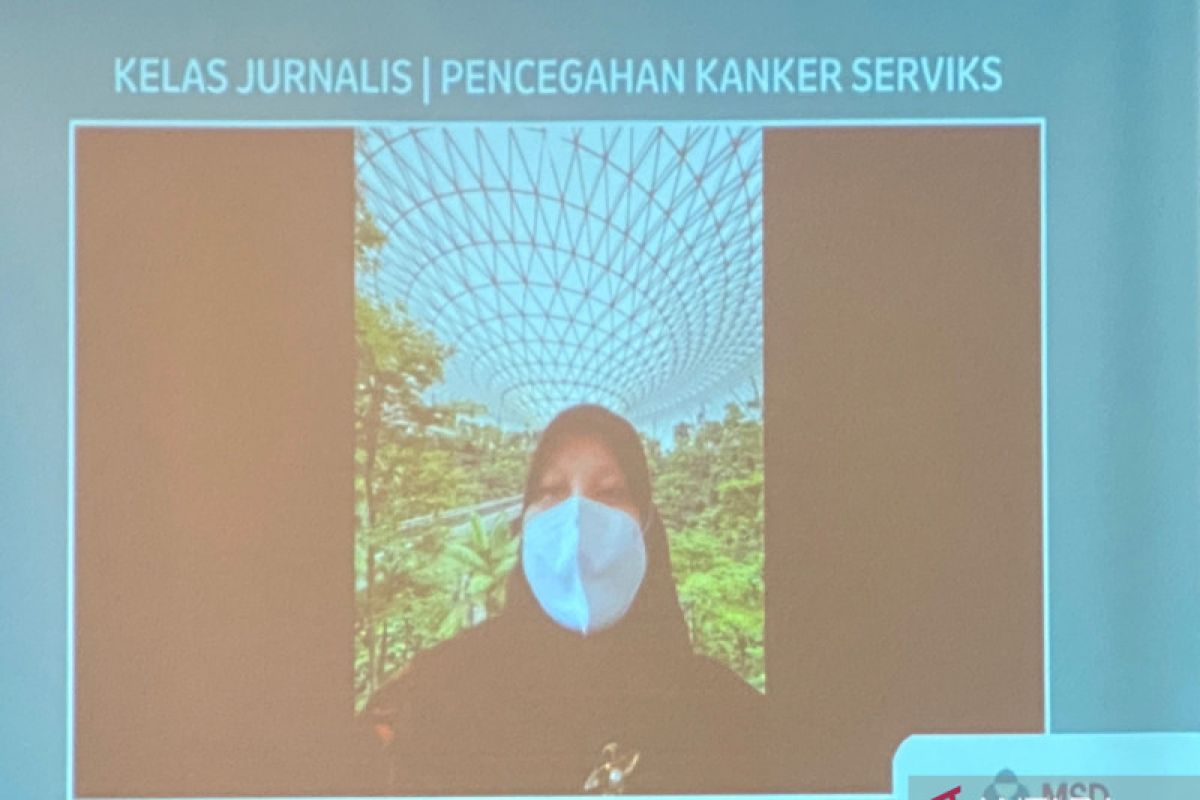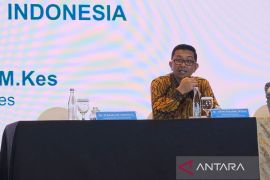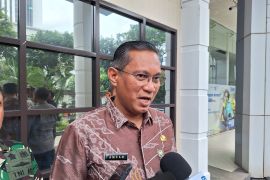"The COVID-19 pandemic teaches us to strive for a health system that is resilient to the main threats of public health emergencies," the ministry's Director of Public Health Governance, Mayang Sari, said at the Cervical Cancer Prevention Journalist Class in Jakarta, Wednesday.
Sari emphasized that a strong health system would help to realize a healthy society and encourage the economy and development of the country to become much stronger.
In Indonesia, one of the approaches is to promote the provision of two doses of the HPV vaccine to students in grades 5 and 6 according to ITAGI recommendations and integrated in the School Child Immunization Month (BIAS), she noted.
The HPV vaccine must be given to children from an early age because cervical cancer is the second leading cause of death for women in Indonesia. Meanwhile, as many as 95 percent of cervical cancer cases are caused by infection with the HPV virus.
"In addition, giving the HPV vaccine is scientifically proven to be safe, protects girls from cervical cancer and reduces the number of case findings because the vaccine helps the body to form antibodies to fight the virus," Sari explained.
She remarked that cervical cancer had even become one of the causes of the large burden that greatly affects the state budget.
According to State-run Healthcare and Social Security Agency (BPJS Kesehatan) data in 2016 alone, the number of cervical cancer cases until June 2016 was recorded at 45,006 patients, who must be treated, with 9,381 of them requiring hospitalization, costing up to Rp84.7 billion.
In addition, Health Minister Budi Gunadi Sadikin, in a working meeting with Commission IX of the Indonesian House of Representatives (DPR RI), also said that the four diseases that drained health funds the most were heart disease, which contributed to the burden of up to Rp10 trillion; cancer, Rp3.5 trillion; stroke, Rp2.5 trillion; and kidney failure, Rp2.3 trillion.
Recognizing the huge impact on the health aspect, Sari stated that the Indonesian government and all countries are determined to eliminate cervical cancer by 2030.
To this end, the government took concrete steps in the form of strengthening early detection using the IVA test, or visual inspection with acetic acid, and gradually expanded HPV immunization starting in 2016.
Sari stated that currently, 24 districts and cities had conducted HPV immunization. Vaccine provision will be further expanded to 112 districts and cities in 2022 and will be implemented nationally in 2023 to accelerate the elimination of cervical cancer.
She remarked that HPV vaccination had been included in routine immunization. Currently, the number of vaccines in routine immunizations, which originally only had 11 types, had increased to 14 types.
Sari said the government strengthens early detection of cervical and breast cancer to prevent high mortality rates while transforming primary care that focuses on each life cycle.
"We are also integrating the network of primary health centers (puskesmas) and integrated health service (posyandu) while strengthening local monitoring," she added.
Related news: First Lady reviews early cervical cancer screening service
Related news: National-scale cervical cancer vaccination starts next year: Minister
Related news: Cervical cancer vaccination is free, mandatory, and government-funded
Translator: Hreeloita Dharma S, Resinta S
Editor: Sri Haryati
Copyright © ANTARA 2022











